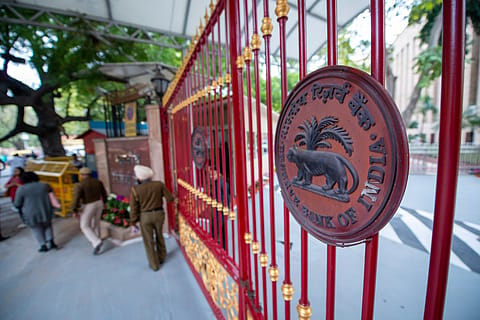RBI flags US ‘comprehensive assault’ as significant external risk to India’s growth
Diversification of export markets is the need of the hour, besides exploiting the domestic demand better

The Reserve Bank of India (RBI) has, for the first time, directly criticized the United States government’s trade actions as an economic attack on India, highlighting the most serious external risk to the country’s growth.
In its latest Monetary Policy Committee (MPC) minutes for the September 29–October 1, 2025, meeting, the RBI warned that the Trump Administration’s tariff and visa policies could substantially harm India’s exports, small businesses, and employment. The minutes described these measures as a “comprehensive assault on India with successive announcements over the past few weeks.”
According to MPC member Dr Nagesh Kumar, India’s economic growth trajectory and projection face potential disruptions due to a series of harsh trade measures from the US.
He cited the imposition of the 25+25% reciprocal and penal tariffs on goods that took effect at the end of August, along with a hefty $100,000 fee imposed on H1B visas. There are also other measures, including the proposed HIRE Act on outsourcing and the 100% tax on patented pharmaceuticals. These developments, as noted in the minutes, have dramatically changed the external context for India’s economic prospects.
Dr Kumar further explained that the US remains India’s largest trading partner and market for goods and services, making these new tariffs especially damaging. “The trade policy measures adopted by the US, India’s biggest trade partner and most significant market for exports of goods and services, pose challenges for the economy. While the effect on the economic growth rate may be limited to between 40-60 bps, a larger effect is expected on MSMEs and jobs.”
Recommended Stories
“This is because the US is a much more important market for our labour-intensive goods than for all imports. The US accounts for nearly 20% of India’s merchandise exports. Still, our exposure to the US market is far greater at 33% for labour-intensive goods such as textiles and garments, leather goods, gems & jewellery, processed food products like shrimp. These sectors are also dominated by MSMEs and account for a disproportionately larger share (around 40%) of jobs in the manufacturing sector. Therefore, high penal tariffs imposed by the US on India have the potential to affect MSMEs and jobs significantly," he adds.
The RBI also emphasised the importance of diversifying export markets beyond the US and improving the use of existing trade agreements with the UK, EFTA, Japan, Korea, Australia, and the UAE.
(INR CR)
"Diversification of export markets is the need of the hour, besides exploiting the domestic demand better. The Government has undertaken GST reforms that should help in charging the domestic consumption engine. Diversification of export markets beyond the US is also critical. In that context, the recent signing of the UK-India FTA and the India-EFTA Economic and Trade Agreement that became effective on October 1, 2025, are important developments," stated Dr Kumar
It urged that India must move up the value chain in these sectors by building and acquiring globally known brands and that the government’s recent GST reforms should help charge the domestic consumption engine to offset some of the external shocks.